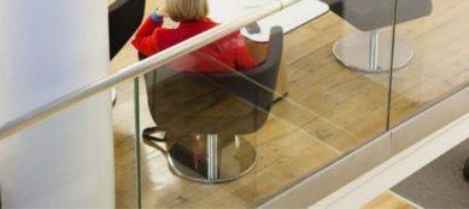February 27, 2016
Want a Google workplace? + The boundless office + Belief in corporate wellness 0
 In this week’s Insight Newsletter; Kelvin Bromley says the office is reinventing itself; Dr Caroline M. Burns argues that the Google office doesn’t work for everyone and Leeson Medhurst warns that providing too much choice at work can lead to confusion. Mark Eltringham finds wellness programme succeed based on perceptions not actions and Matias Rodsevich explores how performance indicators can help meet business goals. A new BCO report reveals commercial property costs are higher than widely thought; why Gen X is the hardest working generation; the Workplace Foundation says the UK is on the verge of a flexible working tipping point and London legal firms move towards open plan working. Download the latest issue of Work&Place and access an Insight Briefing produced in partnership with Connection, which looks at agile working in the public sector. Visit our new events page, follow us on Twitter and join our LinkedIn Group to discuss these and other stories.
In this week’s Insight Newsletter; Kelvin Bromley says the office is reinventing itself; Dr Caroline M. Burns argues that the Google office doesn’t work for everyone and Leeson Medhurst warns that providing too much choice at work can lead to confusion. Mark Eltringham finds wellness programme succeed based on perceptions not actions and Matias Rodsevich explores how performance indicators can help meet business goals. A new BCO report reveals commercial property costs are higher than widely thought; why Gen X is the hardest working generation; the Workplace Foundation says the UK is on the verge of a flexible working tipping point and London legal firms move towards open plan working. Download the latest issue of Work&Place and access an Insight Briefing produced in partnership with Connection, which looks at agile working in the public sector. Visit our new events page, follow us on Twitter and join our LinkedIn Group to discuss these and other stories.




























February 9, 2016
Career progression stalled by lack of respect for mums who work part-time 0
by Sara Bean • Comment, Flexible working, Legal news, News, Workplace
(more…)